-
 Bitcoin
Bitcoin $117500
2.15% -
 Ethereum
Ethereum $3911
6.19% -
 XRP
XRP $3.316
10.79% -
 Tether USDt
Tether USDt $1.000
0.01% -
 BNB
BNB $787.2
2.24% -
 Solana
Solana $175.2
4.15% -
 USDC
USDC $0.9999
0.00% -
 Dogecoin
Dogecoin $0.2225
8.40% -
 TRON
TRON $0.3383
0.28% -
 Cardano
Cardano $0.7868
6.02% -
 Stellar
Stellar $0.4382
9.34% -
 Hyperliquid
Hyperliquid $40.92
7.56% -
 Sui
Sui $3.764
7.63% -
 Chainlink
Chainlink $18.48
10.66% -
 Bitcoin Cash
Bitcoin Cash $582.1
1.88% -
 Hedera
Hedera $0.2601
6.30% -
 Avalanche
Avalanche $23.33
4.94% -
 Ethena USDe
Ethena USDe $1.001
0.02% -
 Litecoin
Litecoin $122.3
2.04% -
 UNUS SED LEO
UNUS SED LEO $8.969
-0.27% -
 Toncoin
Toncoin $3.339
0.86% -
 Shiba Inu
Shiba Inu $0.00001287
4.30% -
 Uniswap
Uniswap $10.43
7.38% -
 Polkadot
Polkadot $3.861
5.08% -
 Dai
Dai $1.000
0.02% -
 Bitget Token
Bitget Token $4.513
3.41% -
 Monero
Monero $267.7
-6.18% -
 Cronos
Cronos $0.1499
4.14% -
 Pepe
Pepe $0.00001110
5.15% -
 Aave
Aave $284.9
8.28%
The operating principle of DAO and its role in blockchain
DAOs enable community governance and funding, fostering innovation and decentralization in blockchain, DeFi, and NFT ecosystems, despite facing security and scalability challenges.
Mar 31, 2025 at 11:08 am
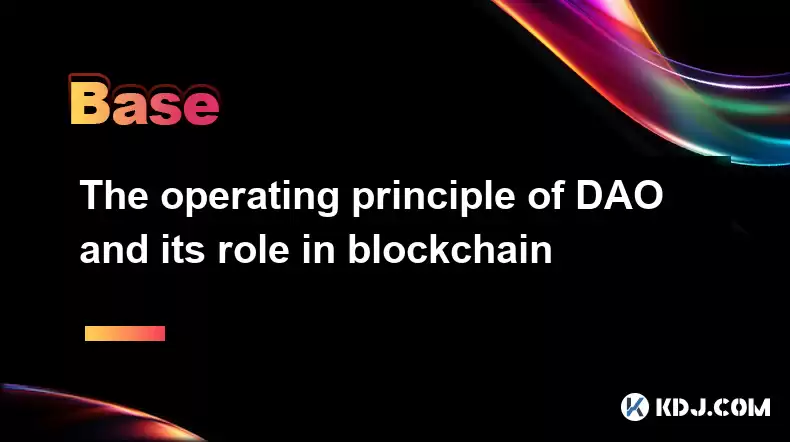
Decentralized Autonomous Organizations (DAOs): A Deep Dive
A Decentralized Autonomous Organization (DAO) is a community-led entity governed by rules encoded as a computer program. This program, typically a smart contract on a blockchain, dictates how the DAO functions, eliminating the need for centralized authority. Decisions are made collectively by members, often through token-weighted voting. This ensures transparency and immutability, key features of blockchain technology. The exact mechanisms vary depending on the specific DAO's design.
How DAOs Operate: A Step-by-Step Guide
- Proposal Submission: Members propose changes or initiatives within the DAO, often detailing the rationale and required resources.
- Voting Process: Members vote on proposals, typically weighted by their token holdings. The voting process is transparently recorded on the blockchain.
- Execution of Proposals: If a proposal passes the required threshold, the smart contract automatically executes the necessary actions. This could involve allocating funds, launching a new project, or modifying the DAO's rules.
- Transparency and Auditability: All transactions and votes are publicly recorded on the blockchain, providing complete transparency and auditability. This eliminates the potential for fraud or manipulation by a central authority.
- Governance Mechanism: The governance mechanism, defined within the smart contract, dictates how decisions are made. This could involve simple majority voting, weighted voting, or more complex systems.
The Role of DAOs in the Blockchain Ecosystem
DAOs play a crucial role in fostering innovation and decentralization within the blockchain space. Their ability to automate decision-making and ensure transparency makes them ideal for managing various aspects of blockchain projects.
DAOs as Funding Mechanisms
DAOs can act as decentralized venture capital funds. Members contribute funds, and proposals for funding new projects are put to a vote. This allows for community-driven investment decisions, potentially fostering innovation in underserved areas. The transparency and automation offered by DAOs can improve the efficiency and fairness of the funding process. This eliminates the need for traditional venture capitalists, reducing reliance on centralized intermediaries.
DAOs for Community Governance
DAOs can govern entire blockchain ecosystems. They can manage the development roadmap, allocate resources, and even decide on protocol upgrades. This empowers the community to directly shape the future of the project, ensuring its alignment with the collective vision. This fosters a sense of ownership and participation among stakeholders.
DAOs and Decentralized Finance (DeFi)
DAOs are increasingly utilized within the DeFi ecosystem. They can manage decentralized exchanges (DEXs), lending platforms, and other DeFi applications. This allows for community-driven governance of these platforms, ensuring that they operate in the best interests of their users. The decentralized nature of DAOs helps mitigate risks associated with centralized control in DeFi.
DAOs and NFTs
DAOs are also being used to manage collections of Non-Fungible Tokens (NFTs). This allows communities to collectively govern the use and development of their shared NFT assets. This can involve deciding on future projects, collaborations, and even the distribution of royalties. This empowers NFT holders and fosters a sense of community ownership.
Challenges and Limitations of DAOs
Despite their potential, DAOs face several challenges. The complexity of smart contract programming can lead to vulnerabilities and bugs. Furthermore, the effectiveness of DAO governance depends heavily on the participation and engagement of its members. A lack of participation can lead to decisions being made by a small, potentially unrepresentative group.
Security Risks in DAOs
DAOs, like any software, are susceptible to security vulnerabilities. Bugs in the smart contract code can be exploited by malicious actors, leading to loss of funds or other disruptions. Thorough audits and security reviews are crucial to mitigate these risks. The reliance on community participation also introduces potential risks. A lack of engagement or manipulation by a small group can lead to undesirable outcomes.
Scalability Issues in DAOs
As DAOs grow larger, they can face scalability challenges. The processing of proposals and votes can become slow and expensive, hindering the efficiency of the organization. Solutions such as layer-2 scaling solutions are being explored to address these issues.
Common Questions and Answers
Q: What is the difference between a traditional organization and a DAO?
A: Traditional organizations are centrally controlled, with a hierarchical structure. DAOs are decentralized, with decisions made collectively by members through a smart contract.
Q: How secure are DAOs?
A: DAO security depends on the robustness of their smart contracts. Thorough audits and security reviews are crucial to minimize vulnerabilities. However, no system is perfectly secure.
Q: How do I participate in a DAO?
A: Participation usually involves acquiring the DAO's governance token. The specific requirements vary depending on the DAO.
Q: What are the benefits of using a DAO?
A: Benefits include transparency, automation, community governance, and reduced reliance on centralized intermediaries.
Q: What are the risks associated with DAOs?
A: Risks include smart contract vulnerabilities, governance challenges, and the potential for manipulation by a small group.
Q: What is the future of DAOs?
A: The future of DAOs is uncertain, but their potential to revolutionize organizational structures and community governance is significant. Ongoing development and innovation will likely shape their future role in the blockchain ecosystem.
Disclaimer:info@kdj.com
The information provided is not trading advice. kdj.com does not assume any responsibility for any investments made based on the information provided in this article. Cryptocurrencies are highly volatile and it is highly recommended that you invest with caution after thorough research!
If you believe that the content used on this website infringes your copyright, please contact us immediately (info@kdj.com) and we will delete it promptly.
- FTT Token's Wild Ride: Creditor Repayments vs. Market Drop - A New Yorker's Take
- 2025-08-08 07:10:12
- Floki Crypto Price Prediction: Riding the Robinhood Rocket or Just a Meme?
- 2025-08-08 07:15:12
- EigenLayer, Restaking, and Ethereum: Navigating the Hype and the Hazards
- 2025-08-08 06:30:12
- Super Bowl 59: Jon Batiste to Jazz Up the National Anthem
- 2025-08-08 06:30:12
- Cold Wallet Crypto in 2025: The Future is Now, Ya'll
- 2025-08-08 05:10:13
- MAGACOIN, SOL, and ADA: A Tale of Shifting Tides in Crypto
- 2025-08-08 05:10:13
Related knowledge
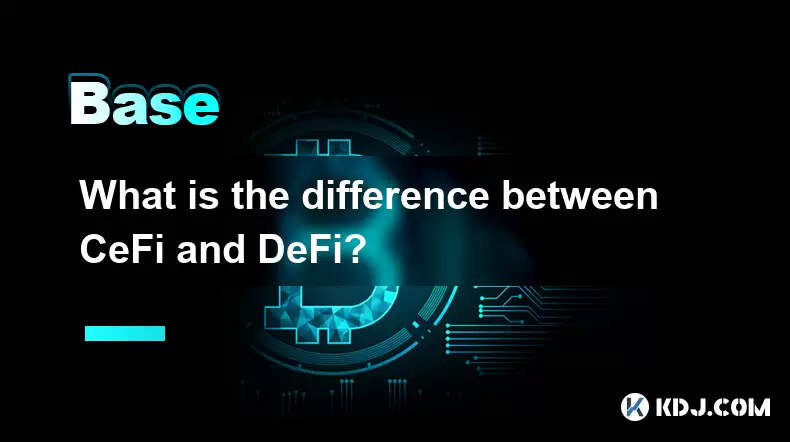
What is the difference between CeFi and DeFi?
Jul 22,2025 at 12:28am
Understanding CeFi and DeFiIn the world of cryptocurrency, CeFi (Centralized Finance) and DeFi (Decentralized Finance) represent two distinct financia...
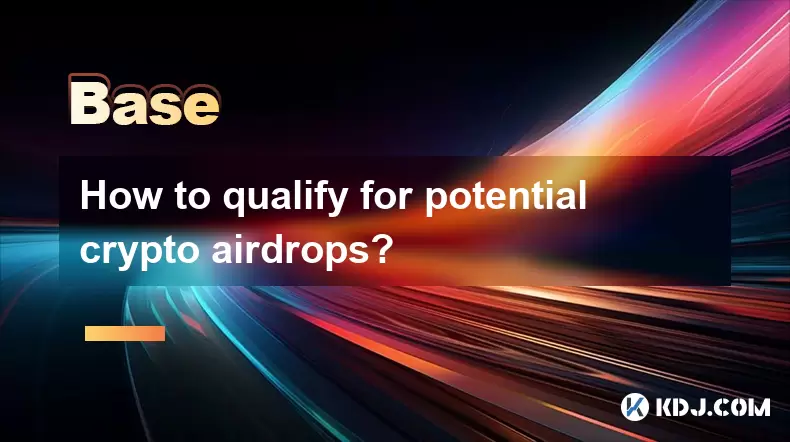
How to qualify for potential crypto airdrops?
Jul 23,2025 at 06:49am
Understanding What Crypto Airdrops AreCrypto airdrops refer to the distribution of free tokens or coins to a large number of wallet addresses, often u...
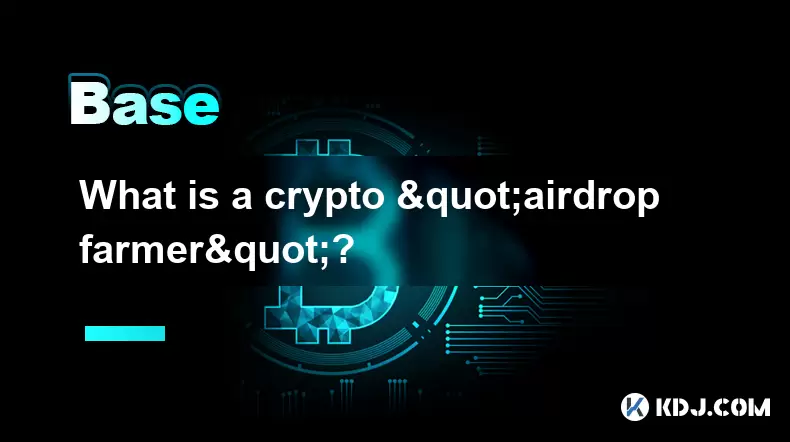
What is a crypto "airdrop farmer"?
Jul 24,2025 at 10:22pm
Understanding the Role of a Crypto 'Airdrop Farmer'A crypto 'airdrop farmer' refers to an individual who actively participates in cryptocurrency airdr...
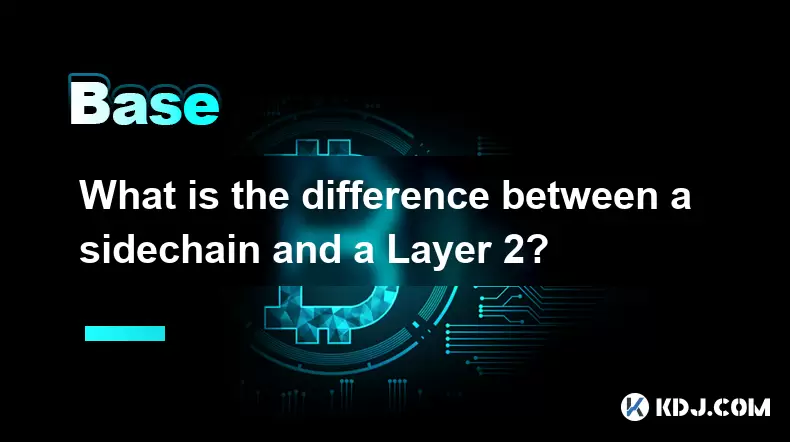
What is the difference between a sidechain and a Layer 2?
Jul 20,2025 at 11:35pm
Understanding the Concept of SidechainsA sidechain is a separate blockchain that runs parallel to the main blockchain, typically the mainnet of a cryp...
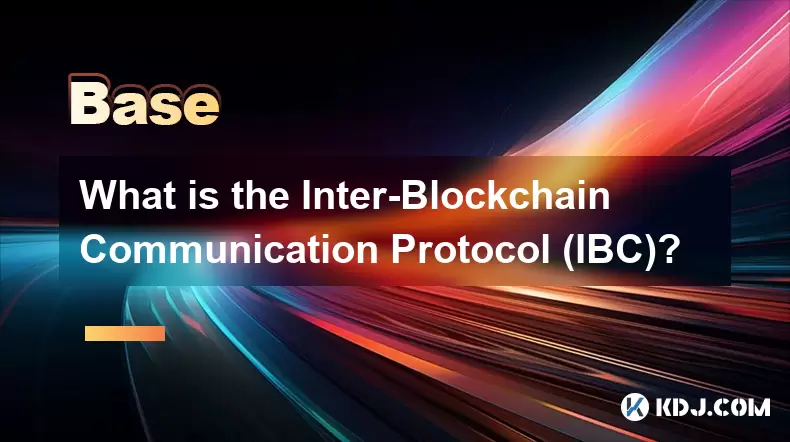
What is the Inter-Blockchain Communication Protocol (IBC)?
Jul 19,2025 at 10:43am
Understanding the Inter-Blockchain Communication Protocol (IBC)The Inter-Blockchain Communication Protocol (IBC) is a cross-chain communication protoc...
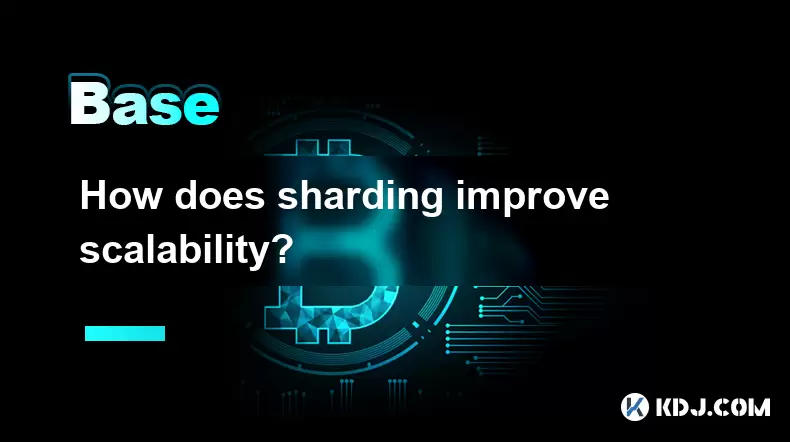
How does sharding improve scalability?
Jul 20,2025 at 01:21am
Understanding Sharding in BlockchainSharding is a database partitioning technique that is increasingly being adopted in blockchain technology to enhan...

What is the difference between CeFi and DeFi?
Jul 22,2025 at 12:28am
Understanding CeFi and DeFiIn the world of cryptocurrency, CeFi (Centralized Finance) and DeFi (Decentralized Finance) represent two distinct financia...

How to qualify for potential crypto airdrops?
Jul 23,2025 at 06:49am
Understanding What Crypto Airdrops AreCrypto airdrops refer to the distribution of free tokens or coins to a large number of wallet addresses, often u...

What is a crypto "airdrop farmer"?
Jul 24,2025 at 10:22pm
Understanding the Role of a Crypto 'Airdrop Farmer'A crypto 'airdrop farmer' refers to an individual who actively participates in cryptocurrency airdr...

What is the difference between a sidechain and a Layer 2?
Jul 20,2025 at 11:35pm
Understanding the Concept of SidechainsA sidechain is a separate blockchain that runs parallel to the main blockchain, typically the mainnet of a cryp...

What is the Inter-Blockchain Communication Protocol (IBC)?
Jul 19,2025 at 10:43am
Understanding the Inter-Blockchain Communication Protocol (IBC)The Inter-Blockchain Communication Protocol (IBC) is a cross-chain communication protoc...

How does sharding improve scalability?
Jul 20,2025 at 01:21am
Understanding Sharding in BlockchainSharding is a database partitioning technique that is increasingly being adopted in blockchain technology to enhan...
See all articles

























































































